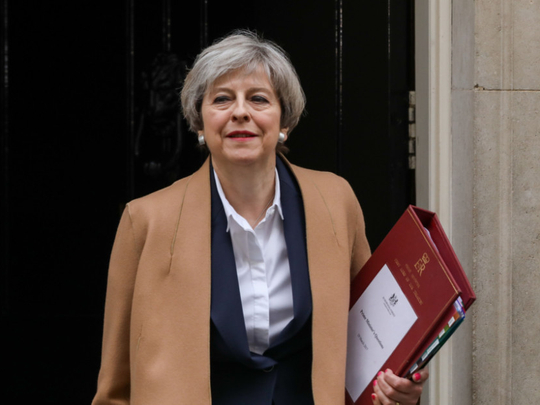
The triggering of Article 50 of the Treaty on European Union by the UK was the main talking point of a majority of world papers this week. The process by which a member state may withdraw from the EU has set the stage for years, if not decades, of negotiating.
“This week Britain said goodbye to the European Union with a letter of divorce, which upset continental leaders with unsubtle demands that they open their markets up for trade on friendly terms or we might not be able to continue military cooperation,” said The Guardian in an editorial. “Given how Theresa May interprets the Brexit vote, this represents too great a loss of sovereignty. But it would not rule out a UK-EU trade deal. There is also a negotiation about negotiations, setting their sequence to gain the upper hand on the substance. The EU wants first to sort out the exit bill and citizens’ rights. The UK will do so if it can also have a parallel discussion about a post-Brexit partnership. Article 50, the instrument that triggered Britain’s departure, is unambiguous: leaving the EU must take into account the framework for a future relationship. Both sides are digging in. It feels like any divorce — only the lawyers win,” the paper said.
Down Under, New Zealand Herald drew its readers’ attention to the UK’s firm commitment to Nato. “Britain is obviously entering the Brexit negotiations with a weak hand. Why else would its Prime Minister make a scarcely veiled threat that Britain’s cooperation in security, intelligence and crime-fighting in Europe depended on the terms of Britain’s departure from the European Union. The threat, which Theresa May’s ministers have since downplayed, was simply not credible. Britain remains strongly committed to Nato, which is the pillar of Europe’s security not the EU,” the paper editorialised.
“As for crime-fighting, it is inconceivable Britain would refuse to cooperate with European police, especially on counter-terrorism. Most of May’s speech to Parliament as she formally invoked Article 50 of the EU constitution was about the ties that would continue to bind Britain and Europe when Britain leaves. These passages were much more credible than the odd note she struck for the purpose of negotiation,” it added.
The Daily Telegraph threw its support behind the government’s efforts. The newspaper wrote, “The goal is worth some hard work. Britain is seeking to restore its sovereignty. The road will be long; there will be obstacles to progress. The problem boils down to perspective. In her Lancaster House speech, delivered in January, the Prime Minister signalled that her focus is on the future: on the terms of withdrawal, yes, but also future cooperation — laying the foundations for ‘the greatest possible access’ to the European market ‘through a... bold and ambitious free trade agreement’. Then there is the issue of the fate of foreign citizens. Mrs May wanted to strike an early deal on this matter, to say that the EU citizens currently resident in the UK were welcome to stay. But Berlin and Brussels refused to discuss it.”
Striking a note of caution, The Irish Times reminded its readers about the sensitivity of the ‘exit’ decision. “The UK’s departure is essentially motivated by sovereigntist concerns. It is a vote to restore [as the Prime Minister said] the national self-determination. Yet her letter acknowledges the paradox that the UK, in establishing a new trade relationship with the EU, ‘will lose influence over the rules that affect the European economy’. ‘We ... understand that there will be consequences for the UK of leaving the EU,’ she says while the UK chancellor Philip Hammond warned that UK would not be ‘able to have its cake and eat it’. The negotiators will also have to finesse the timing of a decision on the scale of the UK’s leaving bill — although at least there is here an acknowledgement that the UK may have what she calls ‘international obligations’ of an unspecified scale. The issue is still deeply neuralgic, however, and could collapse talks early.”




_resources1_16a31069e4e_small.jpg)






